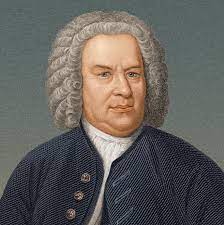Johann Sebastian Bach, a towering figure in the history of classical music, was born on March 31, 1685, in Eisenach, Germany. He came from a family of musicians, with several generations before him excelling in the art. Orphaned at the age of ten, he moved in with his eldest brother, Johann Christoph, who introduced him to the world of music.
Bach’s musical talents blossomed under his brother’s tutelage. He learned to play the violin and harpsichord and was exposed to the compositions of contemporary composers, which greatly influenced his own style. At the age of fifteen, Bach embarked on a journey to study music in depth. He walked over 200 miles to Lüneburg, where he enrolled in the prestigious St. Michael’s School. It was here that he encountered a rich variety of musical styles and was deeply influenced by the works of renowned composers such as Johann Pachelbel and Dietrich Buxtehude.
After completing his education, Bach began his career as a musician. He served as a court musician in Weimar, Arnstadt, and Mühlhausen, where he gained recognition for his exceptional skills as an organist and composer. In 1717, Bach accepted the position of Kapellmeister at the court of Prince Leopold of Anhalt-Köthen. It was during his tenure in Köthen that Bach composed some of his most celebrated instrumental works, including the Brandenburg Concertos and the Well-Tempered Clavier.
In 1723, Bach assumed the position of Cantor at the St. Thomas School in Leipzig, a post he would hold for the rest of his life. This role required him to compose music for the city’s principal churches, instruct the choir, and oversee music education. During his time in Leipzig, Bach produced an astonishing amount of music, including cantatas, motets, passions, and oratorios.
Bach’s compositions are characterized by their technical mastery, intricate counterpoint, and profound emotional depth. His works spanned a wide range of genres, from sacred choral music to secular instrumental pieces. His compositions are a testament to his deep religious faith, intellectual rigor, and creative genius.
Despite his prolific output and musical genius, Bach’s work was not widely recognized during his lifetime outside of his immediate circle. It was only in the 19th century that his music began to receive the acclaim and admiration it deserved. Today, Johann Sebastian Bach is regarded as one of the greatest composers in the history of Western music, with his works continuing to inspire and enchant audiences around the world. Bach’s legacy lives on not only through his compositions but also through the countless musicians and composers who have been influenced by his revolutionary approach to music.


Comments are closed